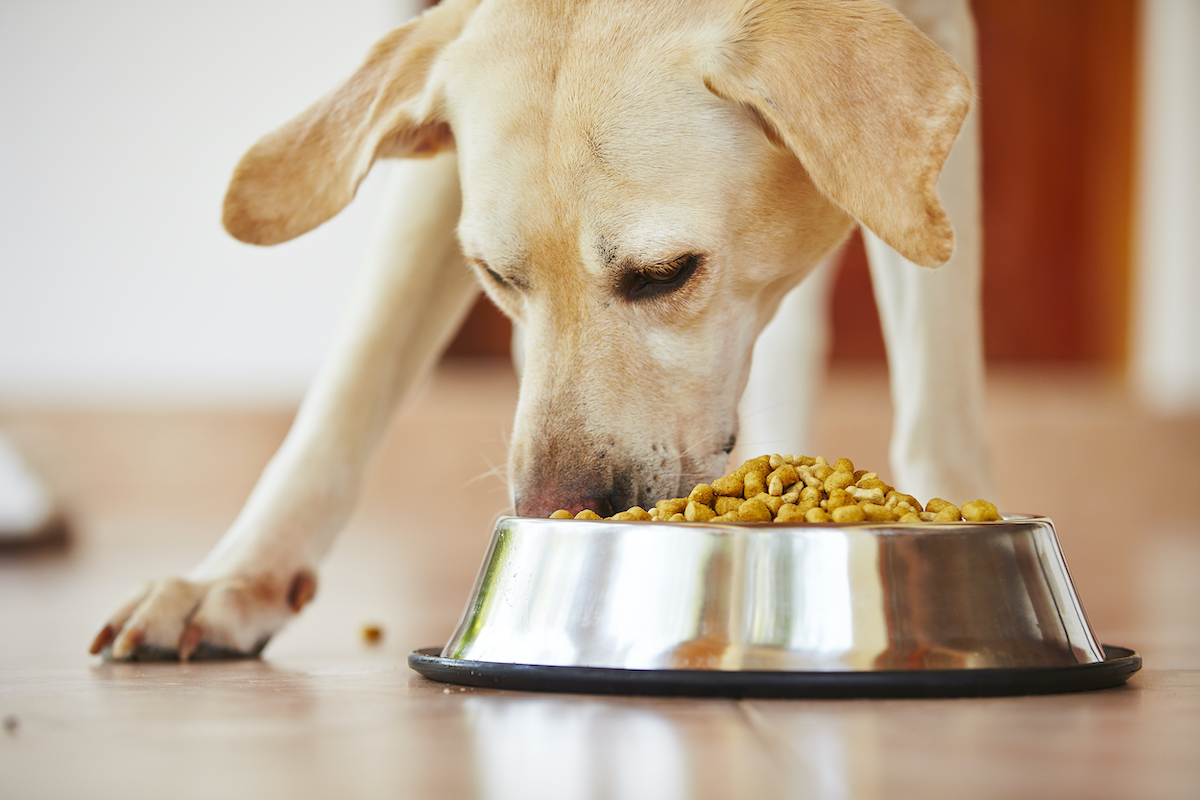There are many different types of dog food available on the market, and each has its own set of pros and cons. A few of the most common types of dog food, include dry kibble, canned food, semi-moist food, freeze-dried food, and raw food. Dry kibble is the most popular type of dog food. It is convenient, easy to store, and can be left out for dogs to eat as needed. It also helps to keep the teeth clean and healthy. Canned food is another popular option, and it is often higher in protein and moisture than kibble. However, it is also more expensive and doesn’t have the same teeth-cleaning benefits as kibble. Semi-moist food is made with a combination of dry and wet ingredients. It is typically higher in protein, but it also has a shorter shelf life and is more expensive.

Freeze-dried food is a newer option, which is made by removing the moisture from raw food. It is convenient and easy to store, and it retains more of the natural vitamins and minerals found in whole foods. However, it is also more expensive than other types of dog food. Raw dog food, also known as the BARF (Biologically Appropriate Raw Food) diet, is based on the idea that dogs should eat a diet that is similar to what they would eat in the wild. Proponents of this diet argue that raw food is more natural and nutritious for dogs.
Dog Breeds with Special Dietary Needs
| Breed | Size | Specific Dietary Needs |
|---|---|---|
| Chihuahua | Small | High protein, high fat |
| Pomeranian | Small | High protein, high fat |
| Yorkshire Terrier | Small | High protein, high fat |
| Boxer | Medium | Balanced protein, fat, and carbohydrates |
| Bulldog | Medium | Balanced protein, fat, and carbohydrates |
| Beagle | Medium | Balanced protein, fat, and carbohydrates |
| Great Dane | Large | Low calories, low fat, joint supplements |
| Saint Bernard | Large | Low calories, low fat, joint supplements |
| Mastiff | Large | Low calories, low fat, joint supplements |
| Great Pyrenees | Giant | Low calories, low fat, joint supplements |
| Irish Wolfhound | Giant | Low calories, low fat, joint supplements |
| English Mastiff | Giant | Low calories, low fat, joint supplements |
| German Shepherd | Working | High protein, high fat |
| Labrador Retriever | Working | High protein, high fat |
| Golden Retriever | Working | High protein, high fat |
Dogs of all breeds can have special dietary needs, but some breeds are more prone to certain conditions that require specific diets. Think of Boxers, Bulldogs, German Shepherds, Labrador and Golden Retrievers, Dachshunds, and Greyhounds. Bulldogs, Labrador Retrievers are prone to obesity, so they may require a diet that is lower in calories and fat to help them maintain a healthy weight. The other breeds are prone to medical conditions, like hip dysplasia and food allergies. It’s important to note that these are general recommendations and that each dog is unique and may have specific dietary needs based on their age, breed, and overall health. It is always best to consult with a veterinarian to determine the best diet for your dog.
